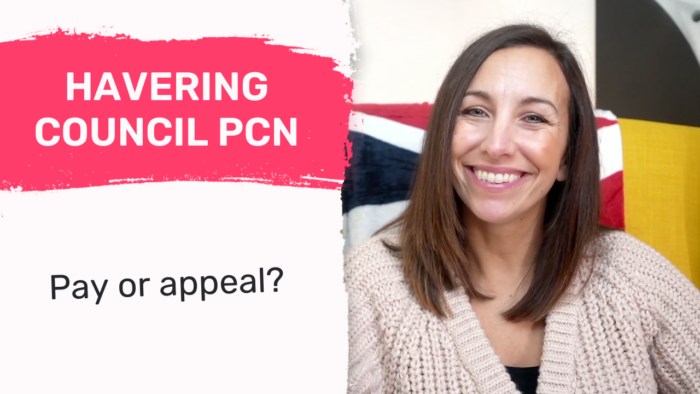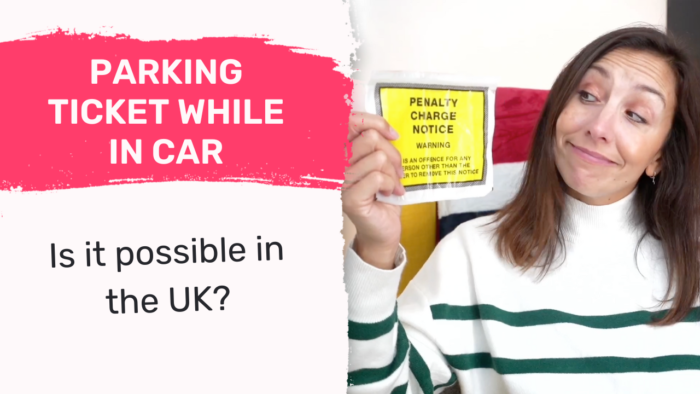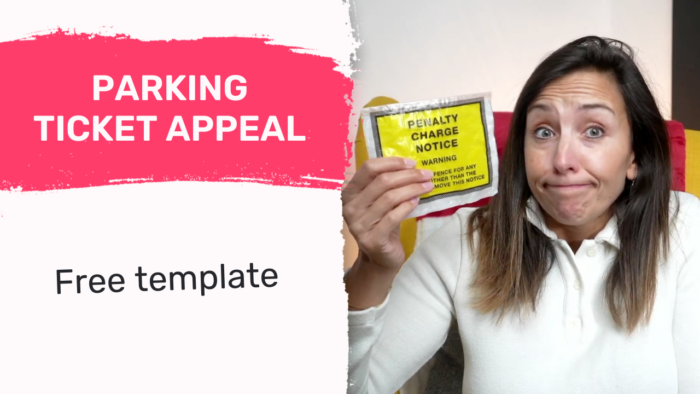Should I Pay or Appeal my Havering Council PCN?

Have you got a Penalty Charge Notice (PCN) from Havering Council? It can feel scary, but you’re not alone. Each month, over 32,000 people visit our site looking for advice on parking fines.
In this easy-to-understand guide, we’ll explain:
- What a Penalty Charge Notice is and why it is given.
- The difference between a Penalty Charge Notice and a Parking Charge Notice.
- How to fight your ticket if you think it’s been given by mistake.
- What happens if you don’t pay a Havering Council PCN.
- How to appeal a Havering Council PCN.
We know how confusing it can be to get a PCN. We are here to help you make sense of it all. So, sit back, take a deep breath, and let’s get started.
Do You Have to Pay?
In some circumstances, you might have a legitimate reason not to pay your fine.
It’s a bit sneaky, but the last time I needed legal advice, I paid £5 for a trial to chat with an online solicitor called JustAnswer.
Not only did I save £50 on solicitor feeds, I also won my case and didn’t have to pay my £271 fine.
Chat below to get started with JustAnswer
In partnership with Just Answer.
What Happens if You Don’t Pay a Havering Council PCN?
The following sequence of events typically occurs if you do not pay a PCN issued by Havering Council (or any other local authority in the UK).
- Increased charge – If you don’t pay the PCN within the discounted early payment period (usually 14 days), the charge will increase, typically to its original full amount.
- Notice to Owner (NTO) – If the PCN remains unpaid after a certain period, the council will send a Notice to Owner to the registered keeper of the vehicle. This notice gives the owner another chance to pay the fine or make a formal representation against the charge.
- Rejection of representation – If you make a formal representation against the PCN and it is rejected by the council, they will send a Notice of Rejection. You will then have a set period (usually 28 days) to either pay the PCN or appeal to an independent adjudicator.
- Charge certificate – If you don’t pay the PCN after receiving the Notice to Owner and don’t make a formal representation, or if you don’t pay within the period specified in the Notice of Rejection, the council will issue a Charge Certificate. This will increase the amount you owe by 50%.
- Potential legal consequences – In some cases, non-payment could also lead to legal actions, affecting your credit rating.
- Bailiffs/Enforcement agents – If you still don’t pay after the Order for Recovery, the council can engage enforcement agents (formerly known as bailiffs) to recover the debt. They may seize goods to the value of the debt and associated costs. This action will add further charges to the amount you owe.
When dealing with a PCN, it’s important to act quickly. It is important to challenge the PCN if you believe it has been issued unfairly or in error as soon as possible. If you are facing financial difficulties, contact the council to discuss payment arrangements. Ignoring a PCN may lead to increased costs and legal complications.
» TAKE ACTION NOW: Get legal support from JustAnswer
Can You Appeal Against a Havering Council PCN?
Yes, you can appeal against a PCN issued by Havering Council or any other local authority in the UK. The process typically involves several stages, and I have outlined them below.
- Informal Challenge
- After receiving the initial PCN, you can submit an informal challenge (often called a “representation”) to the council. This is usually done within 14 days of the PCN being issued.
- If your informal challenge is accepted, the PCN will be cancelled. If it’s rejected, you can proceed to the next stage of appeal. Note, you can use a standard appeal letter template for this step. You should explain the reason for the appeal. Such as the 5-minute rule not being followed.
- Formal Representation:
- After the informal challenge is rejected, and you receive a “Notice to Owner” (NTO), you can make a formal representation against the PCN.
- The council will then consider this representation. If they accept it, the PCN will be cancelled. If they reject it, they will send a “Notice of Rejection” explaining their decision.
- Appeal to an Independent Adjudicator
- If your formal representation is rejected, you have the right to appeal to an independent adjudicator. In London, this is the London Tribunals (previously known as the Parking and Traffic Appeals Service, or PATAS).
- The adjudicator’s decision is final. If they rule in your favour, the PCN will be cancelled. If they rule against you, you will be required to pay the PCN.
You should provide as much evidence and detail as possible to support your case when appealing. This can include photographs, witness statements, or any other relevant documentation. In addition to meeting all deadlines during the appeal process, it’s crucial to follow the instructions provided by the council and, if necessary, the adjudicator.
Successful Appeal Case Study
Situation
| Initial Fine | £100 |
| Additional Fees | £171 |
| Total Fine | £271 |
The Appeal Process
Scott used JustAnswer, online legal service to enhance his appeal. The trial of this cost him just £5.
| Total Fine | £271 |
| Cost of legal advice | £5 |
JustAnswer helped Scott craft the best appeal possible and he was able to win his case.
Scott’s fine was cancelled and he only paid £5 for the legal help.
In partnership with Just Answer.
Is a Penalty Charge Notice Different to a Parking Charge Notice?
Yes, in the UK, a Penalty Charge Notice (PCN) and a Parking Charge Notice are two different things, and they are issued under different circumstances. Here’s a breakdown of the differences as I see it.
-
Penalty Charge Notice
- Issued by – Local authorities or Transport for London (TfL) for breaches of their parking or traffic management regulations.
- Basis for issue – They are issued for contraventions of statutory parking or traffic rules, such as parking in a restricted zone, driving in a bus lane during its hours of operation, or not paying congestion charges.
- Legislation – PCNs are backed by legislation, and non-payment can lead to further action by the local authority, including increasing the amount owed and ultimately involving enforcement agents (bailiffs).
- Appeal process – If you believe a PCN has been issued unfairly, you can challenge it through the local authority’s formal appeals process. If the challenge is rejected at the initial stage, there’s typically a further right to appeal to an independent adjudicator.
-
Parking Charge Notice
- Issued by – Private landowners or private parking companies for breaches of the terms and conditions they’ve set for parking on their land.
- Basis for issue – They are typically issued for breaches of the contractual terms displayed on signs in the parking area. Common examples include overstaying a free parking period or not displaying a valid permit in a private car park.
- Legislation – They are not backed by statutory legislation in the same way that PCNs are. Instead, they are based on contract law. If you don’t pay a Parking Charge Notice, the private company might pursue the charge through the civil courts, but they cannot levy the same statutory penalties as local authorities can with PCNs. In effect, these are not legally enforceable, and in many cases are nothing more than a fake parking ticket.
- Appeal process – If you disagree with a Parking Charge Notice, you can appeal directly to the company that issued it. If they reject your appeal, you can further appeal to an independent adjudicator, such as the Independent Appeals Service (IAS) or POPLA (Parking on Private Land Appeals), depending on the affiliation of the parking company.
Hire a Parking Solicitor for less than a coffee.

If you’re thinking about appealing your parking ticket then getting some professional advice is a good idea.
Getting the support of a Solicitor can make your appeal much more likely to win.
For a £5 trial, Solicitors from JustAnswer can look at your case and help you create an airtight appeal.
In partnership with Just Answer.

